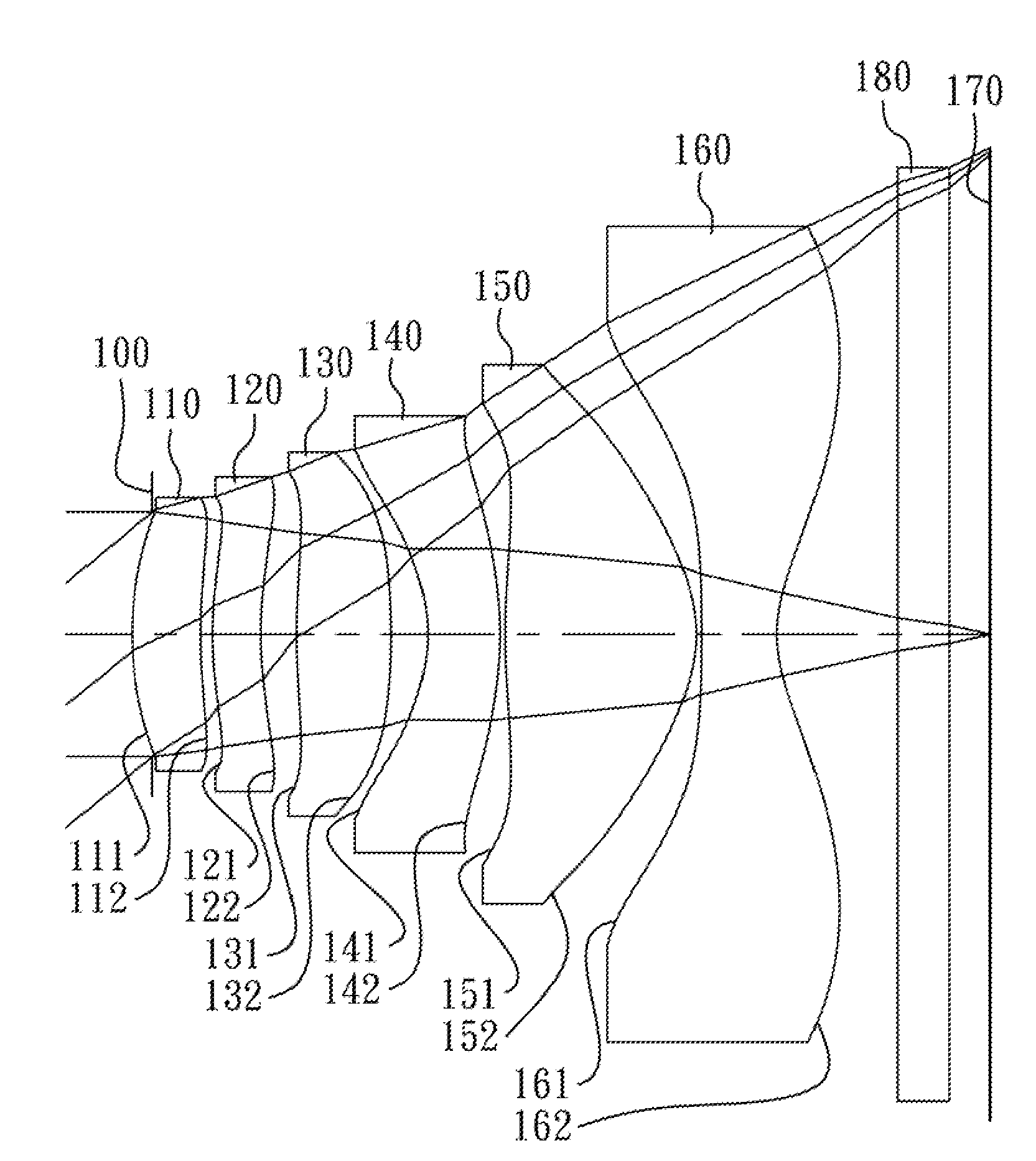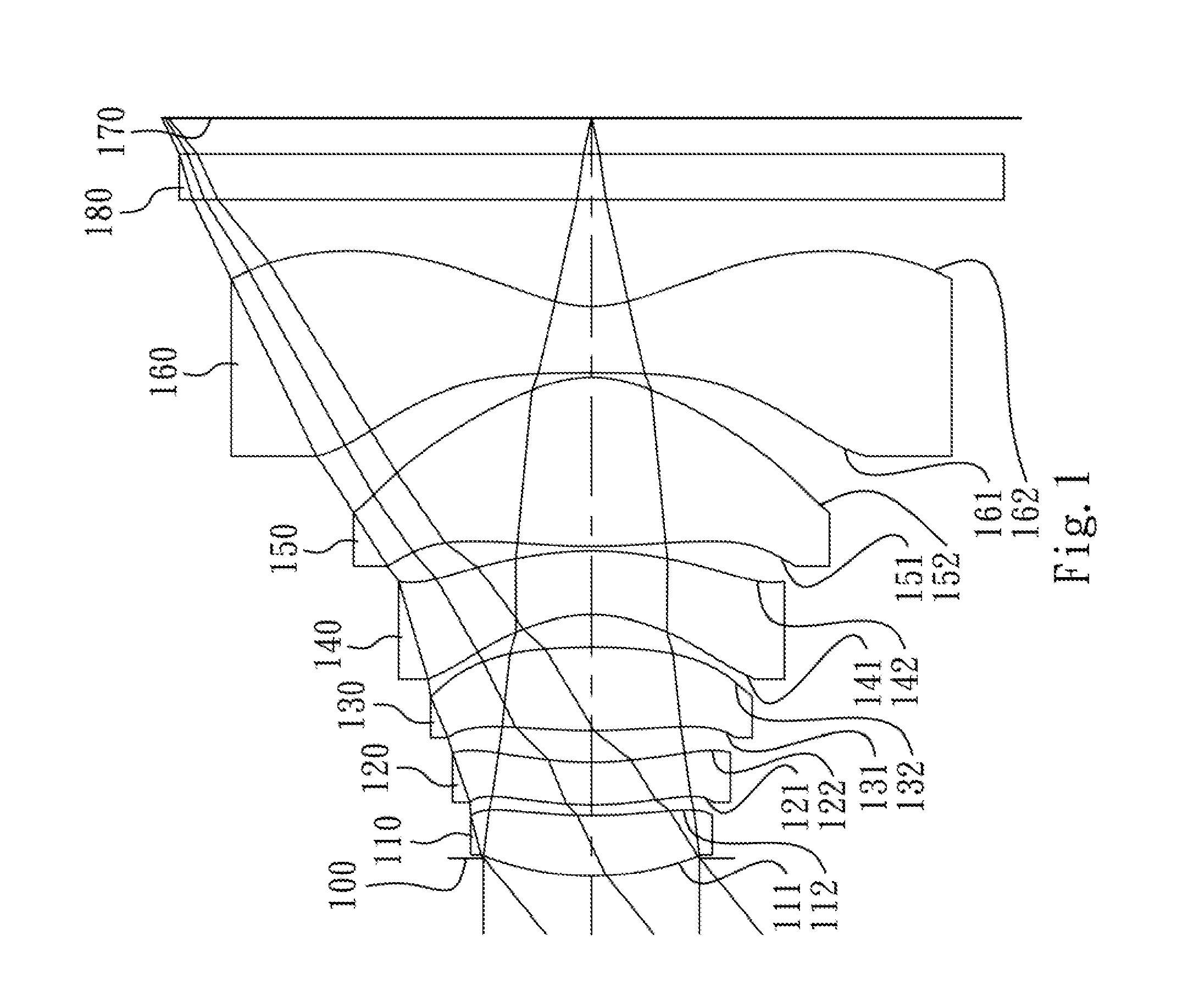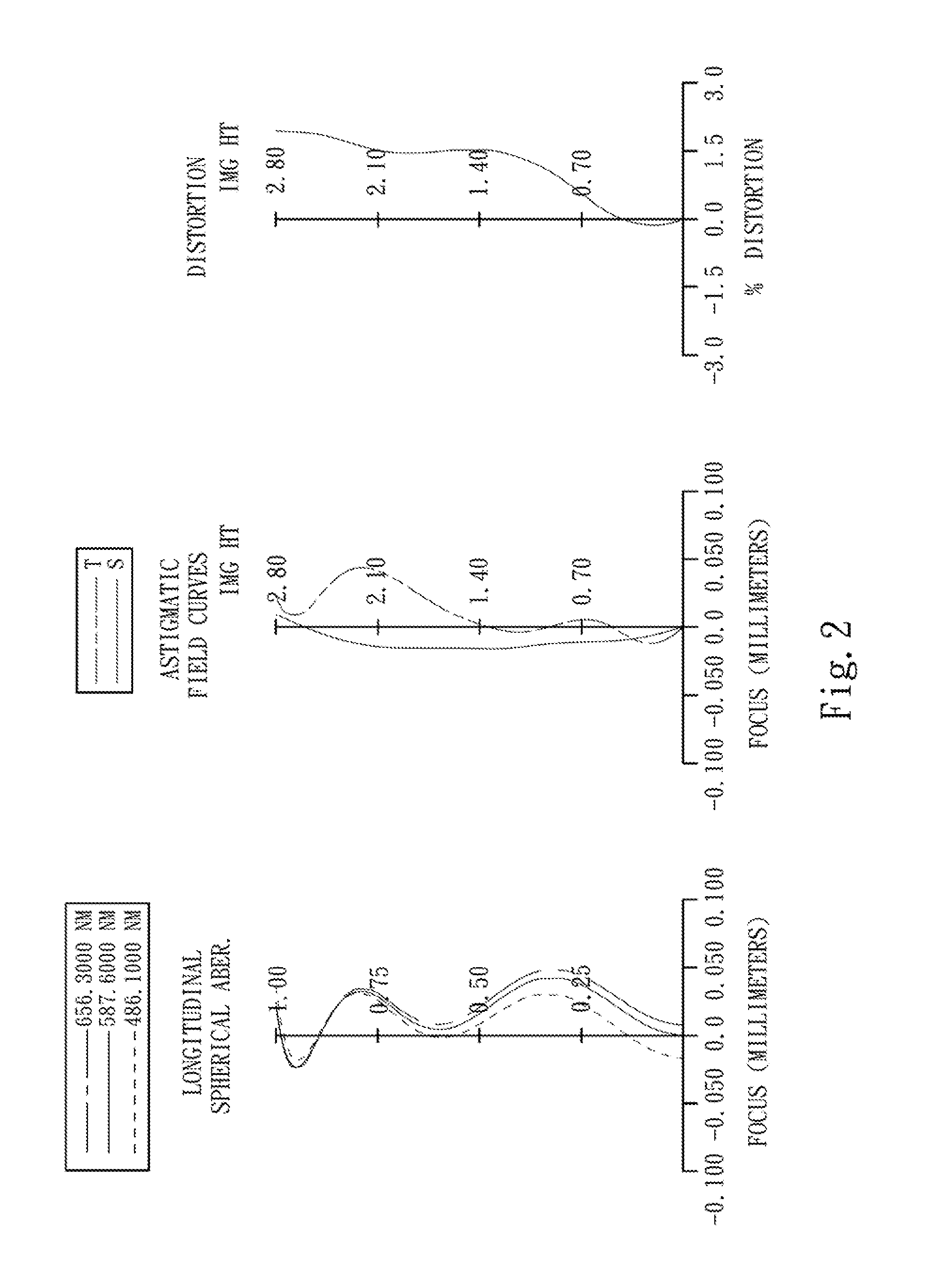Optical image lens system
a technology of optical image and lens system, applied in the field of optical image lens system, can solve the problems of unsolved problems in optical design, unfavorable telephoto functionality, and inability to meet the requirements of compact optical lens system, and achieve the effect of presenting telephoto functionality and avoiding optical design problems
- Summary
- Abstract
- Description
- Claims
- Application Information
AI Technical Summary
Benefits of technology
Problems solved by technology
Method used
Image
Examples
1st embodiment
[0059]FIG. 1 is a schematic view of an optical image lens system according to the 1st embodiment of the present disclosure. FIG. 2 shows spherical aberration curves, astigmatic field curves and a distortion curve of the optical image lens system according to the 1st embodiment. In FIG. 1, the optical image lens system includes, in order from an object side to an image side, an aperture stop 100, a first lens element 110, a second lens element 120, a third lens element 130, a fourth lens element 140, a fifth lens element 150, a sixth lens element 160, an IR-cut filter 180 and an image plane 170.
[0060]The first lens element 110 with positive refractive power has a convex object-side surface 111 and a concave image-side surface 112. The first lens element 110 is made of plastic material and has the object-side surface 111 and the image-side surface 112 being aspheric.
[0061]The second lens element 120 with positive refractive power has a convex object-side surface 121 and a concave imag...
2nd embodiment
[0083]FIG. 3 is a schematic view of an optical image lens system according to the 2nd embodiment of the present disclosure. FIG. 4 shows spherical aberration curves, astigmatic field curves and a distortion curve of the optical image lens system according to the 2nd embodiment. In FIG. 3, the optical image lens system includes, in order from an object side to an image side, a first lens element 210, an aperture stop 200, a second lens element 220, a third lens element 230, a fourth lens element 240, a fifth lens element 250, a sixth lens element 260, an IR-cut filter 280 and an image plane 270.
[0084]The first lens element 210 with positive refractive power has a convex object-side surface 211 and a concave image-side surface 212. The first lens element 210 is made of plastic material and has the object-side surface 211 and the image-side surface 212 being aspheric.
[0085]The second lens element 220 with positive refractive power has a convex object-side surface 221 and a concave imag...
3rd embodiment
[0093]FIG. 5 is a schematic view of an optical image lens system according to the 3rd embodiment of the present disclosure. FIG. 6 shows spherical aberration curves, astigmatic field curves and a distortion curve of the optical image lens system according to the 3rd embodiment. In FIG. 5, the optical image lens system includes, in order from an object side to an image side, an to aperture stop 300, a first lens element 310, a second lens element 320, a third lens element 330, a fourth lens element 340, a fifth lens element 350, a sixth lens element 360, an IR-cut filter 380 and an image plane 370.
[0094]The first lens element 310 with positive refractive power has a convex object-side surface 311 and a concave image-side surface 312. The first lens element 310 is made of plastic material and has the object-side surface 311 and the image-side surface 312 being aspheric.
[0095]The second lens element 320 with positive refractive power has a convex object-side surface 321 and a concave i...
PUM
 Login to View More
Login to View More Abstract
Description
Claims
Application Information
 Login to View More
Login to View More - R&D
- Intellectual Property
- Life Sciences
- Materials
- Tech Scout
- Unparalleled Data Quality
- Higher Quality Content
- 60% Fewer Hallucinations
Browse by: Latest US Patents, China's latest patents, Technical Efficacy Thesaurus, Application Domain, Technology Topic, Popular Technical Reports.
© 2025 PatSnap. All rights reserved.Legal|Privacy policy|Modern Slavery Act Transparency Statement|Sitemap|About US| Contact US: help@patsnap.com



